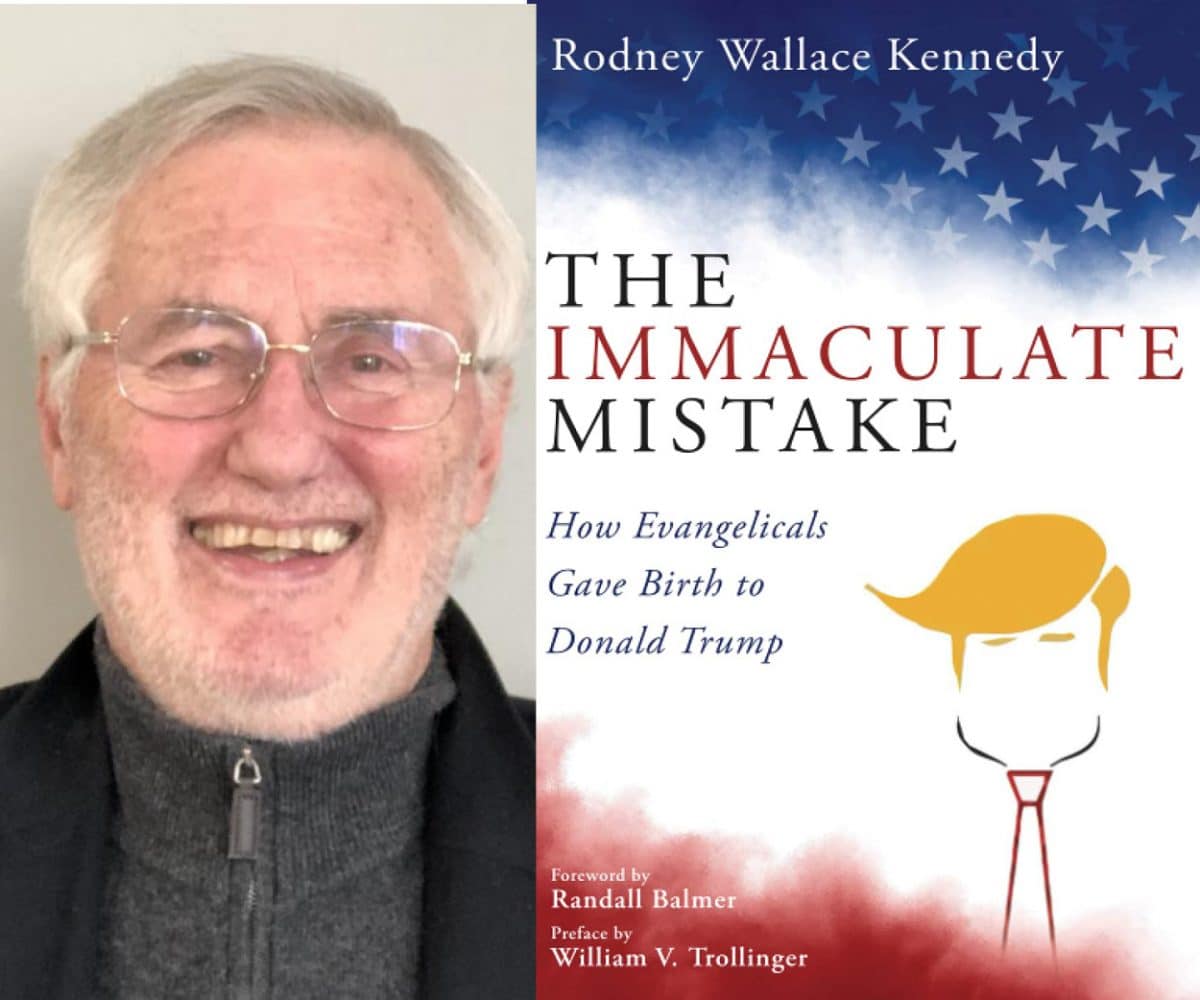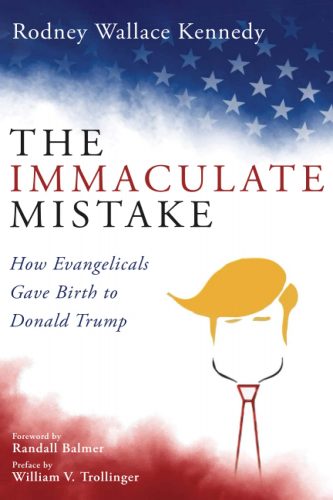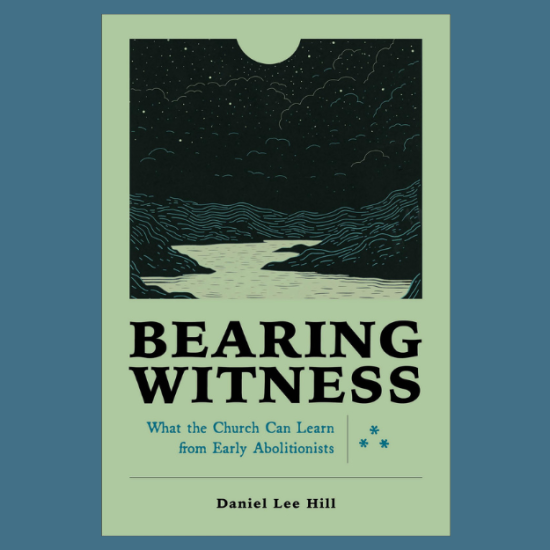
What could possibly be written about Donald Trump that hasn’t already been said? In his sixth book, The Immaculate Mistake: How Evangelicals Gave Birth to Donald Trump, author Rodney Kennedy utilizes his unique identity as a scholar of rhetoric and a Baptist preacher to draw out new understandings of the relationship between evangelicals and the former president. Though it is a theological study at its core, the focus on rhetoric — both religious and political — positions language as a window into how both of these worlds control our reality.
 The book, which features a notable forward by Randall Balmer and preface by William V. Trollinger, centers around challenging the narrative that conservative evangelicals are somehow unaware of what they are doing. This serves as an important counter to popular media narratives that paint the group as unintelligent or irrational. Kennedy expertly demonstrates that their embrace of Trump was not a “shotgun wedding” that came out of nowhere but, rather, he is more like their strongman offspring birthed by at least a century of evangelical preaching tradition that is rooted in fear, anger, and resentment.
The book, which features a notable forward by Randall Balmer and preface by William V. Trollinger, centers around challenging the narrative that conservative evangelicals are somehow unaware of what they are doing. This serves as an important counter to popular media narratives that paint the group as unintelligent or irrational. Kennedy expertly demonstrates that their embrace of Trump was not a “shotgun wedding” that came out of nowhere but, rather, he is more like their strongman offspring birthed by at least a century of evangelical preaching tradition that is rooted in fear, anger, and resentment.
Therefore, we should not be surprised that conservative evangelicals continue to defend and embrace Trump. Kennedy argues that evangelicals hear their own voice when they hear Trump. He doesn’t just say what he thinks — he says what they would say. He might not be an evangelical in the theological sense, but he is exactly that in a rhetorical and political sense.
Kennedy uses three effective case studies to link the history of evangelicals to Trump. First, he looks to Billy Sunday who used the tools of vaudeville to become the first superstar evangelist. Then he turns to J. Frank Norris, a firebrand fundamentalist who shot someone and got away with it. And finally, Jerry Falwell Sr., who was a master media manipulator and knew how to use racism as a political tool.
All of these figures serve as clear precursors to Trump, who Kennedy positions as less of a politician and more of a secular preacher who talks in parables. That is an important lens through which to view him since the term “evangelical” is arguably becoming more of a political term than a religious one as the movement takes on more secular concerns.
The Immaculate Mistake helps us understand precisely why conservative evangelicals did not back one of their own to be the Republican candidate. They would rather have a strongman offering up revenge than a practicing Christian. And they knew exactly what they were doing. As Kennedy points out, Trump loyalist Robert Jeffress once said that he could never hypothetically vote for Jesus because Jesus was soft on terrorism.
Kennedy’s Southern Baptist upbringing shines through in his direct prose. He does not shy away from making judgments and regularly underlines who he thinks the villains are. But this moral clarity is refreshing coming from someone who is not conservative.
His sharp wit regularly shines through, particularly in a chapter about biblical tropes where he details conservative figures attempting to compare Trump to biblical leaders such as King Cyrus, King David, King Solomon, and Samson. Of course, these comparisons fall apart upon any reasonable examination, but they represent broad attempts to present Trump as “God’s anointed.” Except that Paula White made the mistake of suggesting Trump was Queen Esther, a gender bending analogy that conservatives simply could not abide.
Additionally, the book is not all doom and gloom critique. Kennedy also offers a glimmer of hope. This hope is for a prophetic church that critiques power on both the right and the left. A church that sees the gospel as social, not merely a path to individual salvation. For Kennedy, the progressive Christian alternative to Trump is to tell this story clearly and without apology.
Conservative evangelicals will continue to win the culture wars if we fail to pay attention to thinkers like Kennedy who have a clear grasp of how we arrived at this current political and religious moment. If we are to believe Nietzsche’s claim that truth is an “army of metaphors,” then this book helps us both see the battlefield more clearly and offers a map for how it can be won.
Editorial note: Rodney Kennedy serves as a contributing writer for Word&Way. He was the guest on the latest episode of Dangerous Dogma to talk more about his book and ministry. The Immaculate Mistake: How Evangelicals Gave Birth to Donald Trump is now out from Wipf and Stock (Cascades).
Jeremy Fuzy is the voices editor at Word&Way and a Ph.D. candidate at the Missouri School of Journalism.






